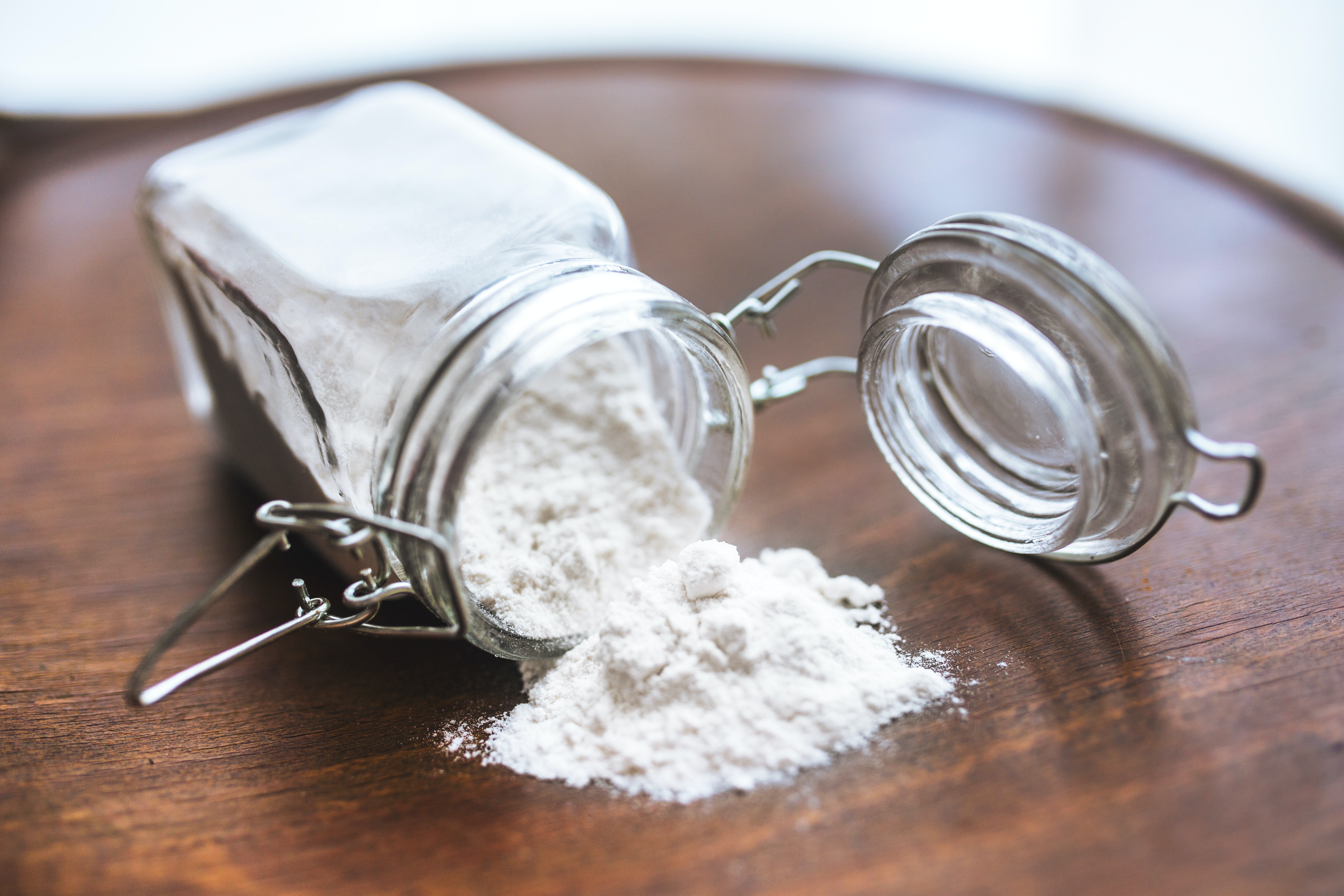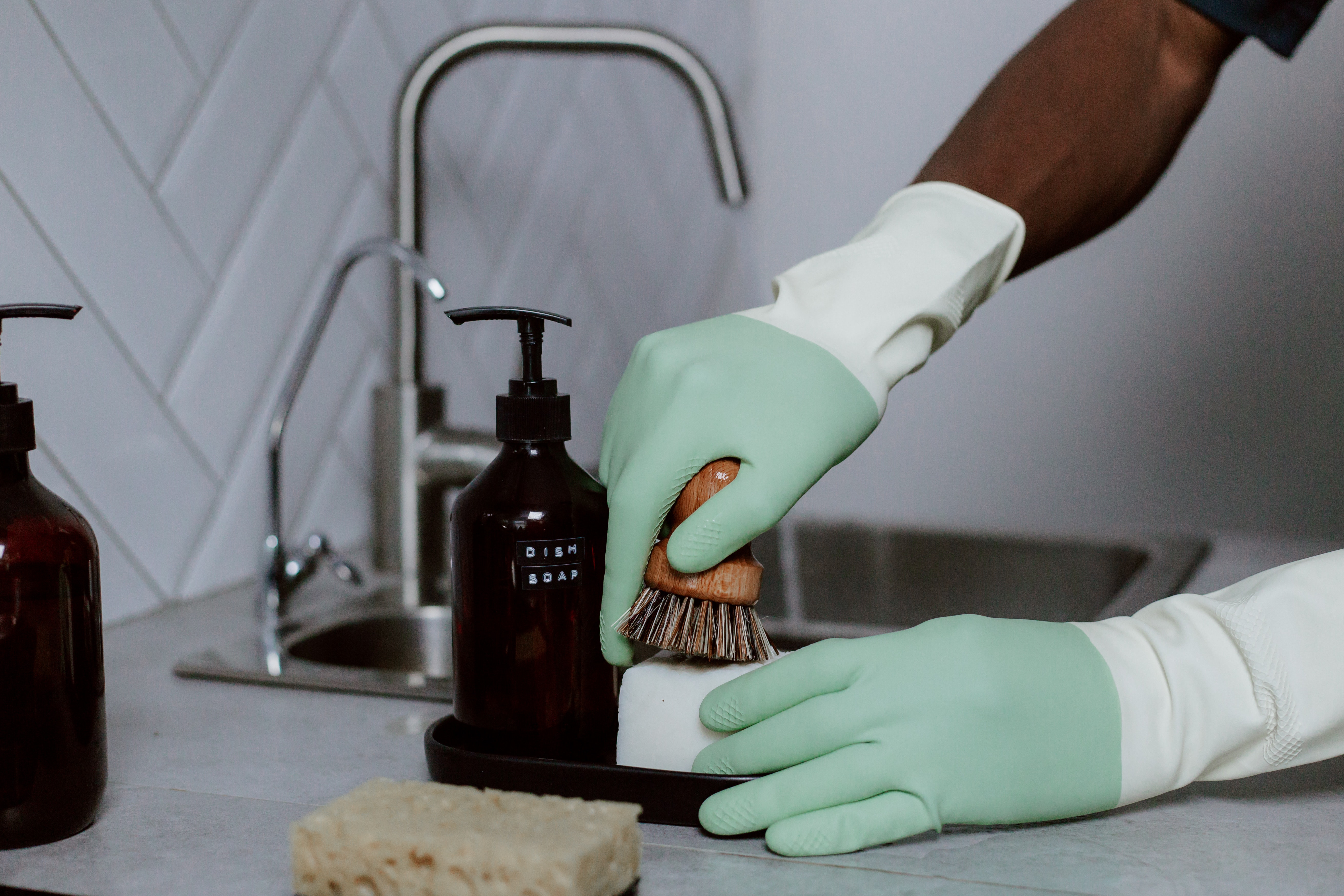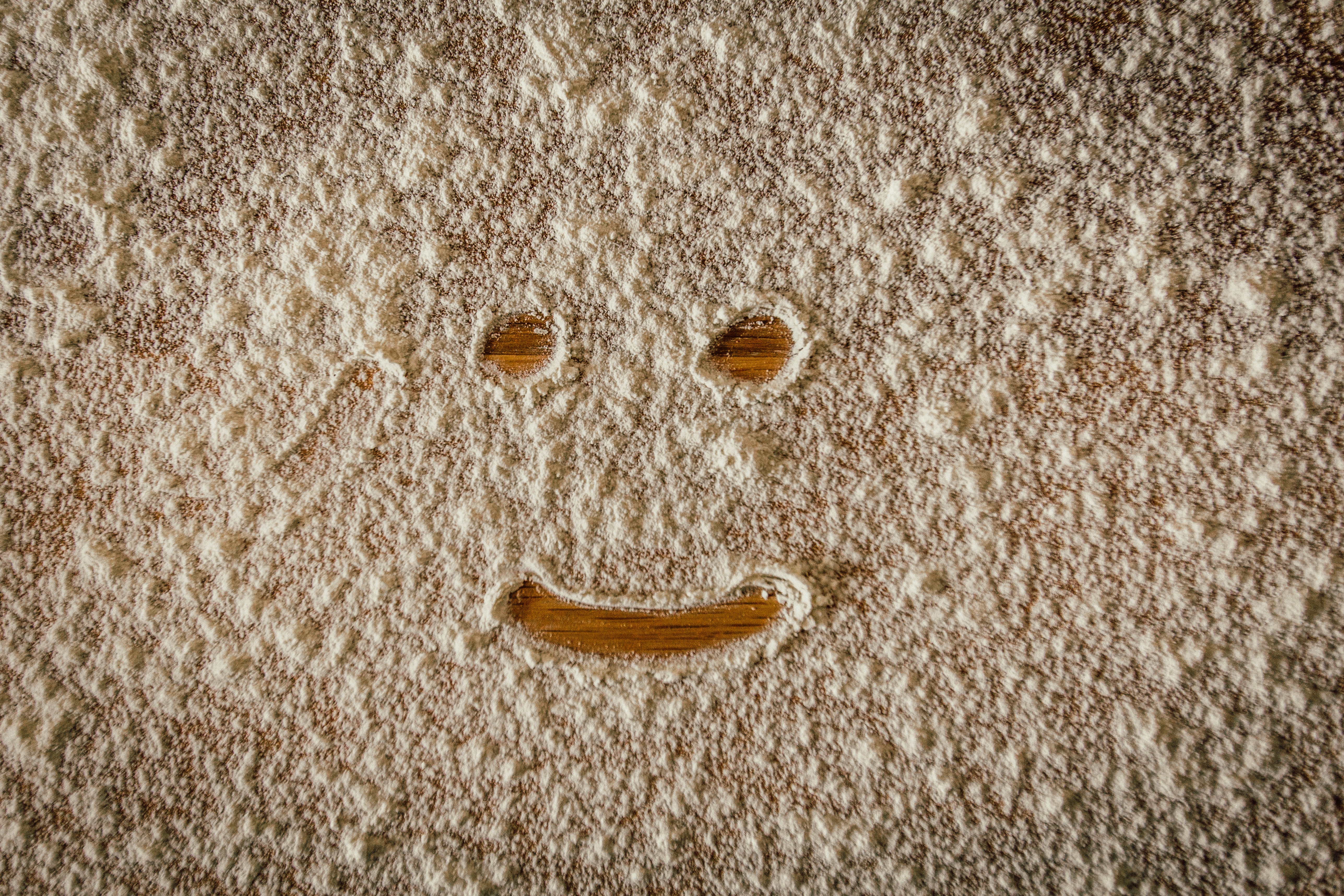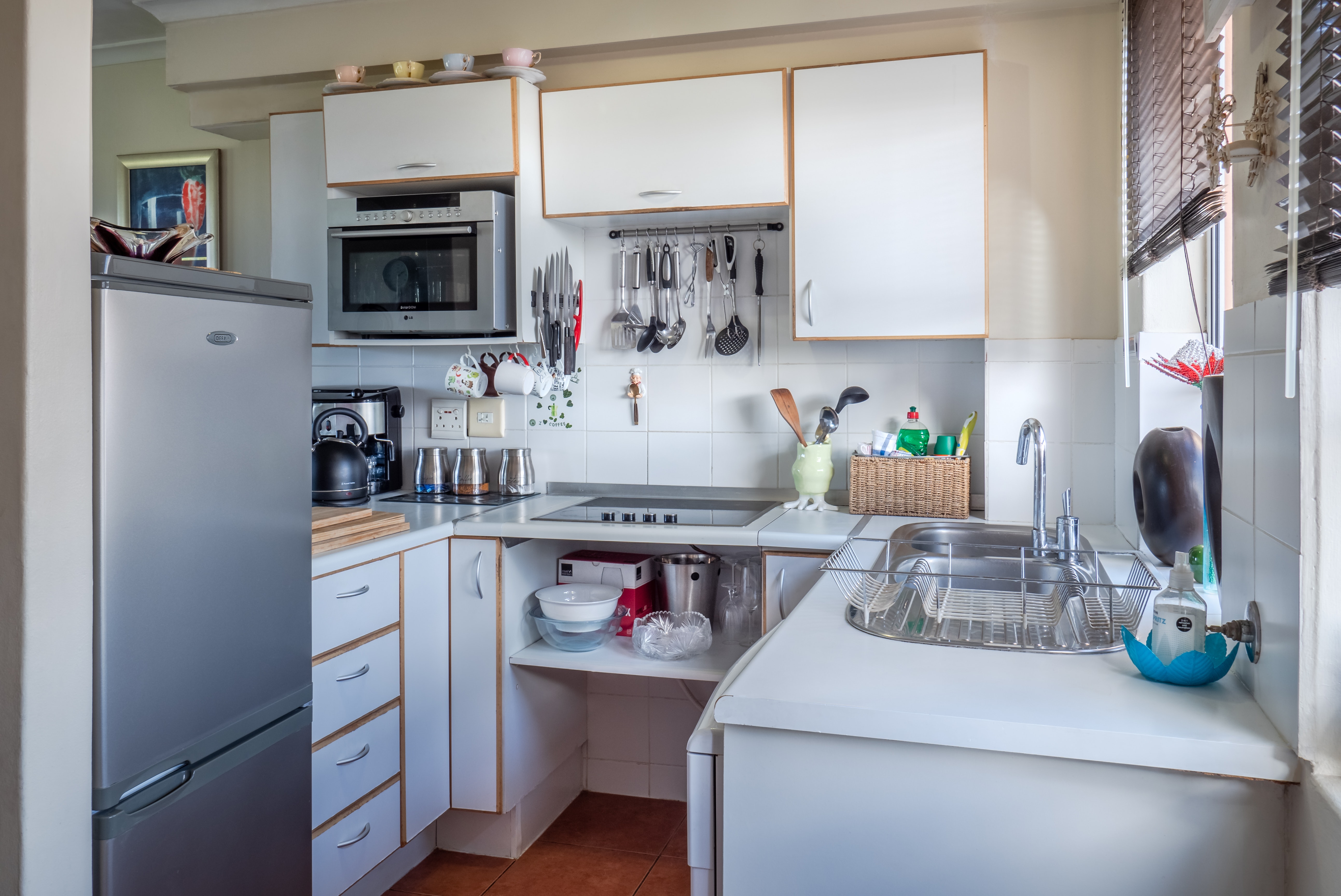Best Home Remedies For Removing Kitchen Stains
5 minuteRead

In the kitchen, grease and stains are a natural occurrence. We have all had to deal with a layer that is too tough to remove with a simple wipe-down, whether it's on our utensil rack, cabinet, or sink. Fortunately, whether you're removing a fresh oil spatter from a batch of fries or years of caked-on residue in your newly purchased home, some home remedies include active chemicals that are better suited to cutting through the filth than others. Here are some of the most effective home treatments for removing difficult kitchen stains:
Remedies For Removal Of Kitchen Stains
Baking Soda and Water
Baking soda is a versatile cleaning agent that may be used for a variety of tasks around the house. You can mix it with water to remove juice and coffee stains from countertops, discolouration on your kitchen stainless steel sink, and hard-to-clean grease. Baking soda is an alkali, which means it dissolves grease very well. It also removes grease without harming your hands or the surfaces you're cleaning because it's mild. Use 1 part baking soda, 2 parts warm water, and 1 part lemon juice to make a cleaning solution. Fill a spray bottle halfway with the solution and spray the liquid on the kitchen cabinets. Allow the baking soda to do its job for a couple of minutes. Scrub the grease away gently with the soft sponge and rinse the sponge and use it again as needed. Lastly, buff the cabinets dry with a clean towel. You can scrub light grease stains from hard surfaces using the solution and a sponge, such as counters, linoleum, the stoves, and even pots and pans.
Vinegar
Image source: rd.com
Although vinegar does not cut grease as effectively as alkali materials, it can help soften the problem and make the grease-cleaning procedure go more smoothly. Spray vinegar directly on difficult, caked-on grease stains, such as the kitchen stainless steel rack or stove and the interior of the oven, or that have stuck to baking plates after an overnight soak in the sink, and let it soak in for about five minutes. The acidic vinegar will help dissolve and soften the tough components (which is largely food oil), making it simpler to brush away with a soft sponge. Apply the vinegar when the surface is hot for the best outcomes, so whether it's a cooking item like a pot or a broiling pan, do so right after you've used or reheated it.
Vinegar can also be used to keep your pots and pans clean by acting as a grease fighter. Simply boil 2 cups of vinegar for 10 minutes in your pan to prevent grease from sticking for numerous months.
Salt and Rubbing Alcohol
Image source: medicalnewstoday.com
Unfortunately, various types of materials found in kitchens can't be washed. Because alcohol is a solvent, it can dissolve grime and oil. It also dries quickly, making it an excellent cleaning agent and kitchen oil stain remover. It's crucial to remember that the fumes are strong, so use it in a well-ventilated place at all times. Second, because both alcohol and its fumes are combustible, keep it away from heat sources like your oven and toaster. Mix 1 part salt with 4 parts rubbing alcohol for non-washable materials including rugs, chair cushions, and carpets. Rub the solution into the stain with a cloth until it pulls away. After the grease has been removed and your solution has dried, vacuum up any extra salt and wipe away any salt streaks with a moist towel. For your utensils, sprinkle a little amount of salt over the stains and allow it to absorb the grease. You can also make a 1:4 solution of salt and rubbing alcohol and massage it firmly on the soiled sticky cutlery for better results.
Dish Soap And Water
Dish soaps are some of the most powerful grease-fighters available. Soaps are designed to adhere to oil and fat molecules and assist wash them away. Squirt a little amount of dish soap straight onto the stain on soft objects like clothes or table linens. Allow the soap to soak in for about 30 minutes before washing the linens in cold water. Kitchen soap, when used on garments and other linens, performs an excellent job of removing grease from the fabric. Warm water and a few drops of dish soap, which has strong degreasing characteristics, can also be used to clean most types of kitchen cabinets. In a bowl of warm water, mix a few drops of dish soap until soapy. Gently scrub the grease and filth away using a sponge dipped in the solution. Finally, use a dry microfiber rag to completely dry the surface.
Flour
Flour can be used on your kitchen stainless steel sink , faucet, refrigerator door, and any other stainless steel surface. It polishes the stainless steel's fine grooves while also removing dirt and grime that a soapy sponge can't reach. As a result, your surfaces will be gleaming, smudge-free, and dazzling. If the grease leak happened recently and the issue is still liquid, cleaning it up right away is preferable to waiting until it becomes a sticky problem. Sprinkle flour over the spill to ensure that all of the grease is removed. The grease will be absorbed by the flour, and you can easily wipe it away.
Preventing a Grease Build Up
Apart from installing a kitchen exhaust, other ways to prevent grease buildup include properly disposing of excess grease, cleaning the floors and surfaces of your kitchen on a daily basis, soaking and cleaning stove burners frequently, and cleaning your grease trap and kitchen exhaust filters on a regular basis. Because oil spatters so quickly, clean your workstation promptly after cooking, whether it's deep-frying or merely stir-frying. Because they will stick and harden, don't assume you'll be able to clear them up afterwards, or even after a few rounds of cooking. It would be tough to clean soon enough. Wipe the hob and cupboard doors clean once a week to reduce grease buildup on the cabinets. To remove any fresh grease marks, simply use a soft cloth and a degreaser. When cooking, wash your hands frequently. This will keep the grease from your hands from migrating to the cabinet doors.
Write, Record and Answer! Consume Unlimited Content! All you need to do is sign in and its absolutely free!
Continue with one click!!By signing up, you agree to our Terms and Conditions and Privacy Policy.
















